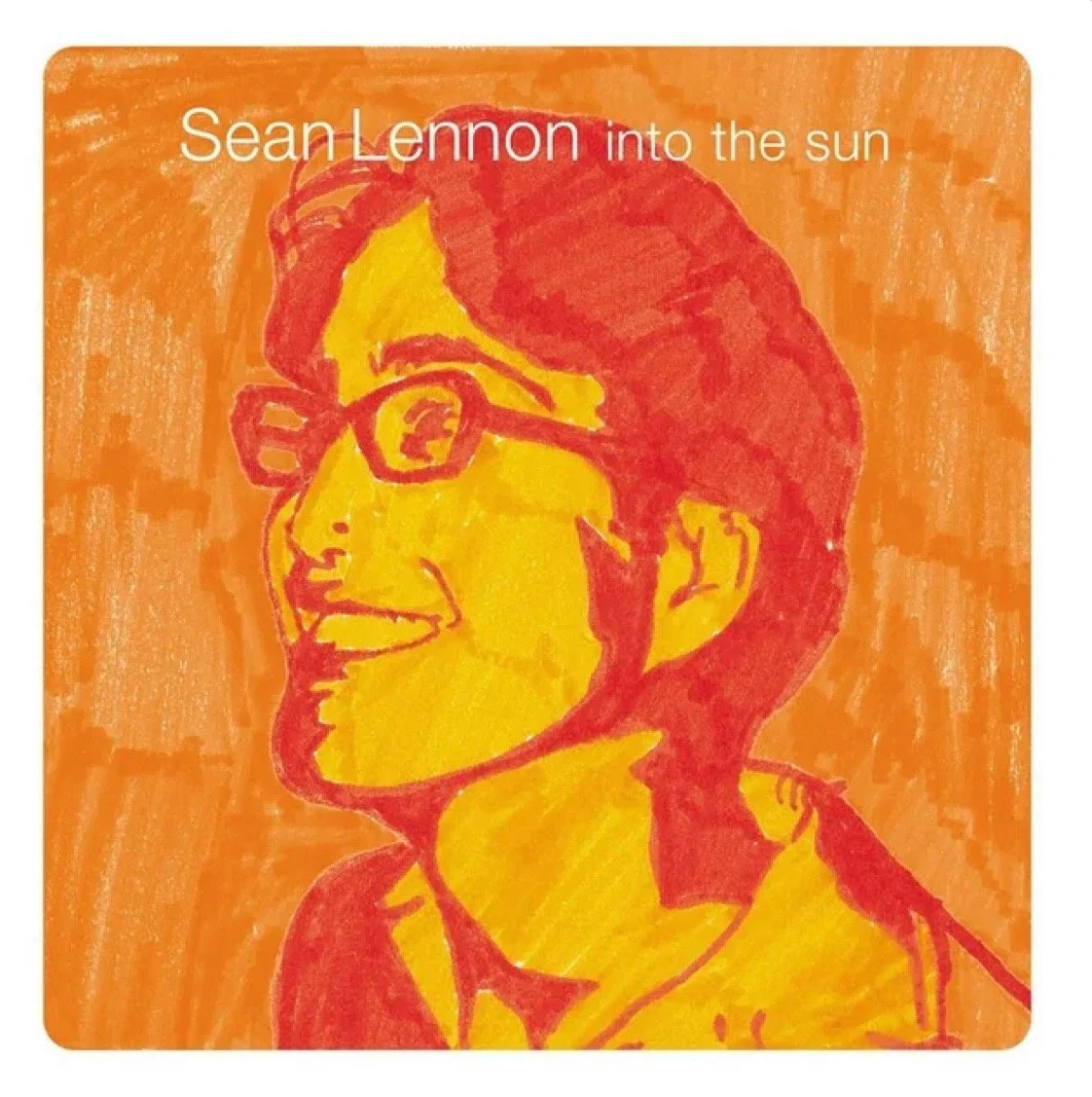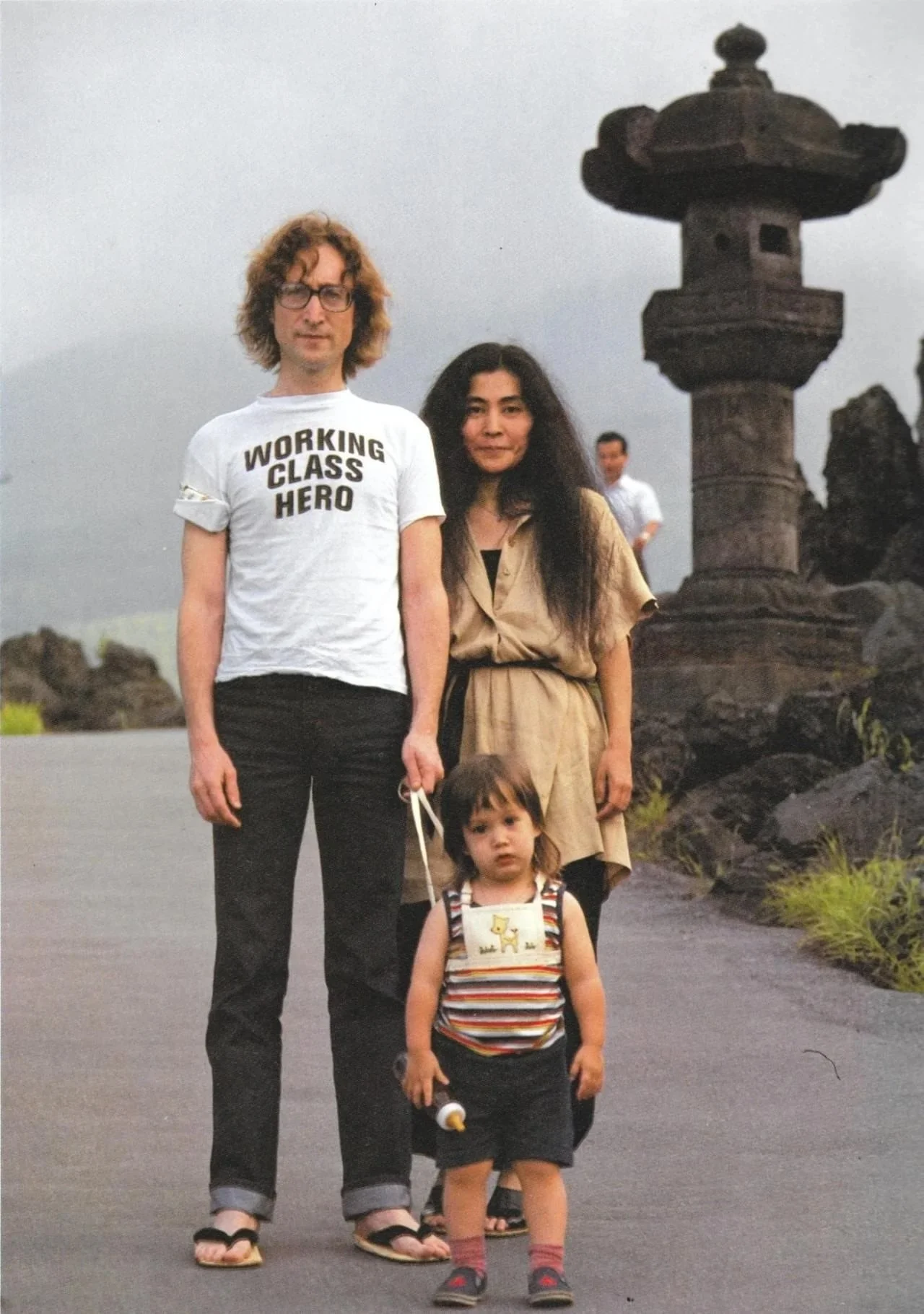SEAN ONO LENNON
INTO THE SUN (1998)
An answer to the age-old question “What if John Lennon and Yoko Ono had a kid—and that kid put out an album in 1998?”
It’s hard (and feels disingenuous) to write about Sean Ono Lennon or his music in a vacuum. Beyond growing up surrounded by world-renowned artists and being able to absorb culture to the highest degree, I’m sure he’s also genetically predisposed to be talented. On one side, his father is a beloved songwriter and vocalist behind the best-selling band of all time; on the other, his mother is a hag. Just kidding, I shouldn’t even ironically lean into any Yoko hate—she’s a truly imaginative and transgressive artist, and I think her role in the Beatles break-up is hugely overstated. And she also just seems very cool.
Anyway…I’m sure it can be quite the cross to bear at times, but the talents and stylings of Sean’s parents feel completely relevant when discussing his work. For starters, you can hear their influence in his music; he even sort of sounds like his dad. But it’s also interesting to consider where he came from when listening to the pieces that really don’t sound like something that his parents would (or could) create.
This album—Sean’s debut—is kind of an amazing feat. In a unique way, it pulls from the music of decades past while also feeling ahead of its time. And yet, it sounds extremely “of the moment,” too. For example, take the opening track “Mystery Juice,” which starts off as a quiet and catchy little strummer that could fit on any one of the Plastic Ono Band albums—before the most 1998-sounding guitar rips right into it. On top of that, the vocals and clever, rhyme-y lyrics remind me of the indie and twee music of the early 2000s. Each verse on this song seems to take on a new vowel sound that Sean then uses in as many words as possible. Sort of his version of the “Apples and Bananas” classic (AKA “Oopples and Boonoonoos”). Here he is flexing on the long o sound:
Baby I’m afraid to let you go
They stole the show and towed the rowboat
Though slow
We’re on the go like rabbits in the snow
Ten long o sounds, very nice. But how about the oo sound?
I’m always biting more than I can chew
To lose the blues I choose to flew the coop
Who knew?
Is it news that you were out the loop?
Earl Sweatshirt who? This guy can do it all! It’s playful and impressive songwriting and makes me think of later bands like the Moldy Peaches or even She & Him whose quaint and cutesy music dominated a chunk of the following decade. On Into the Sun, we reach peak twee when we get to the title track, which I have to say is an undeniable jam. Again, in terms of this album’s prescience, a song like this with its quirky guitar and male-female split vocals sort of sounds like Dirty Projectors or Rilo Kiley, just 5-10 years earlier. What’s funny is the track that immediately follows it, “Home,” features loud, scuzzy, and gratuitous guitar in the style of Soundgarden, Stone Temple Pilots, Toadies, or Bush—all successful and fashionable bands at the time, at least by the standards of rock radio listeners.
The album periodically veering into these different directions can be a bit disorienting, but Into the Sun is at its best when the past, present, and future are all tied together. Back to the opening track, its multi-phased nature and use of both doo-wop sounds and heavy guitar are evocative of one of John Lennon’s best songs, “Happiness Is A Warm Gun.” Cuts like this remind you that he’s his father’s son. At the same time, his individuality and the left turns he takes remind you that he’s his mother’s, too.
Then just 23 years old, Sean seems to not only already have a world of musical references to pull from, but he also appears pretty self-assured in his own offerings. His lyrics are emotional—both sweet and dark at the same time—and he has a lot to say. Quick songs like “One Night” are beautiful and demonstrate a genuine knack for songwriting. “Two Fine Lovers” is fun and catchy, and he’s daring enough to balance synths with a bossa nova arrangement.
As he eventually makes evident by later career moves, such as teaming up with musical freak (and freak in general) Les Claypool to form their psych/prog outfit, Sean Ono Lennon can pretty much do whatever he wants and pull it off. I think a natural instinct is to therefore accuse him of not having his own true style, but he exists at the nexus of so much incredible art and talent that it seems well-crafted music just pours out of him—much of it personal, like the piano-driven closer “Sean’s Theme.”
Does it completely negate that point to now make a couple of other comparisons? So be it. Much of this album reminds me of Elliott Smith, who released XO in 1998 and was also nominated for a damn Oscar that year. At the very least, the delicate vocals, confessional songwriting, and rocking guitars on Into the Sun sound like Elliott’s work with Heatmiser a few years earlier, especially a song like Mic City Sons’ “See You Later.” Dare I say there’s even some Ween on this album? “Queue” is a bouncy and silly track from Sean right at the peak of Gene and Dean Ween’s ‘90s output, and it feels like he shares musical tendencies with those unsuspecting savants.
Lastly, it wouldn’t be a 1998-sounding album without a swing revival song that no one asked for. The nearly 7-minute instrumental “Photosynthesis” breaks up Into the Sun’s A and B sides with upright bass, flute, trombone, and trumpet. It’s much more pleasant but still reminds me of 1997’s “Zoot Suit Riot” from the Cherry Poppin’ Daddies, which—for my money—wins the trifecta for worst song, worst song name, and definitely worst band name. Thankfully, “Photosynthesis” doesn’t lean as far into the ska elements that make CPD (I can’t even bear to spell it out again) so insufferable.
This is a good album, and you should listen to it. It was recommended to me by a fellow North Brooklyn comrade who acknowledged it’s flown way too under the radar and correctly said, “I can’t believe it’s not even considered a cult classic.” Quit reading shanealbums.com already, and give it a shot! The first song is a good place to start.

